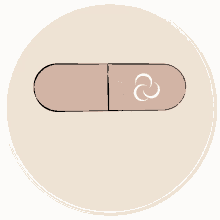Introduction
Vitamin C, also known as ascorbic acid, is an essential nutrient that plays a crucial role in various bodily functions. It is known for its antioxidant properties, and its involvement in collagen synthesis, immune function, and the absorption of iron from plant-based foods. While vitamin C is naturally found in various fruits and vegetables, some individuals may consider supplementation to achieve adequate levels or address specific health concerns. This article delves into the benefits, sources, recommended dosages, and potential risks associated with vitamin C supplements.
Benefits of Vitamin C Supplements
One of the primary advantages of vitamin C supplements is their ability to support the immune system. Research has shown that adequate vitamin C levels can help reduce the duration and severity of common colds. Additionally, vitamin C is essential for the maintenance of healthy skin, as it promotes collagen production, which is fundamental for skin elasticity and wound healing.
Moreover, vitamin C acts as a powerful antioxidant, neutralizing harmful free radicals in the body. This protective function may contribute to a lower risk of chronic diseases, including heart disease and certain types of cancer. Furthermore, vitamin C supplementation has been associated with improved iron absorption, especially for individuals with iron-deficiency anemia. By enhancing iron uptake from plant sources, vitamin C may play a key role in improving overall iron status in the body.
Sources of Vitamin C
Vitamin C can be found in a wide array of fruits and vegetables. Fruits such as oranges, strawberries, kiwi, and guava are particularly high in this nutrient. Veggies like bell peppers, broccoli, Brussels sprouts, and kale are also excellent sources. However, despite the availability of vitamin C in whole foods, some individuals may struggle to consume adequate amounts due to dietary restrictions, conditions that increase their need for vitamin C, or insufficient intake of fruits and vegetables.
In such cases, vitamin C supplements become a viable option to help fill nutritional gaps. These supplements come in various forms, including tablets, capsules, powders, and chewables. Choosing the right form often depends on personal preference and specific health needs.
Recommended Dosages
The recommended dietary allowance (RDA) for vitamin C varies by age, gender, and life stage. For adults, the RDA is 90 mg per day for men and 75 mg per day for women. However, some health care professionals may recommend higher dosages in certain cases, such as for individuals with specific health issues or those exposed to increased oxidative stress. Before starting a supplement regimen, it is advisable to consult with a healthcare provider to determine the appropriate dosage based on individual health status and dietary habits.
Potential Risks and Considerations
While vitamin C is generally well tolerated, excessive supplementation can lead to gastrointestinal disturbances such as diarrhea, nausea, and abdominal cramps. Moreover, extremely high doses may increase the risk of kidney stones in susceptible individuals. For this reason, it is essential to adhere to recommended dosages and consult a healthcare professional, particularly for individuals with chronic health conditions or those who are pregnant or breastfeeding.
Conclusion
In summary, vitamin C supplements offer numerous health benefits, particularly in supporting the immune system, enhancing skin health, and aiding iron absorption. While whole food sources are preferable for obtaining this essential nutrient, supplements serve as an effective alternative for those unable to meet their nutritional needs through diet alone. As with any supplement, it is vital to approach vitamin C supplementation thoughtfully and to seek guidance from a healthcare professional to ensure safety and efficacy.





